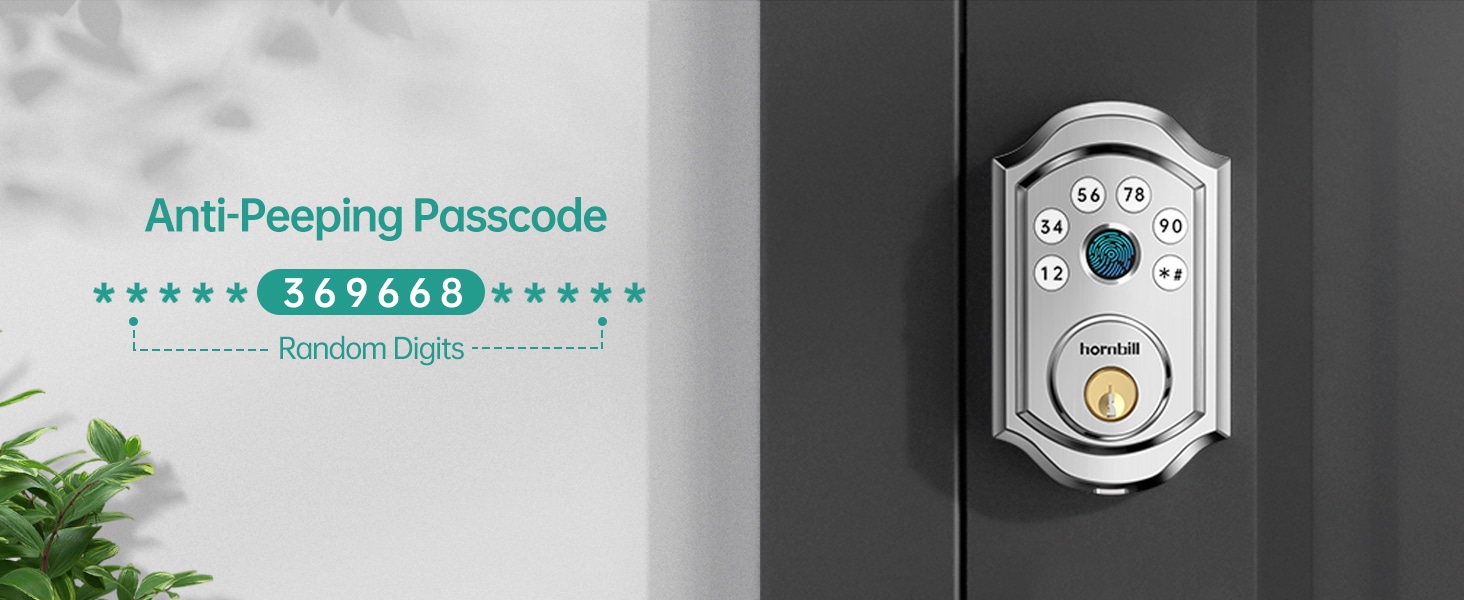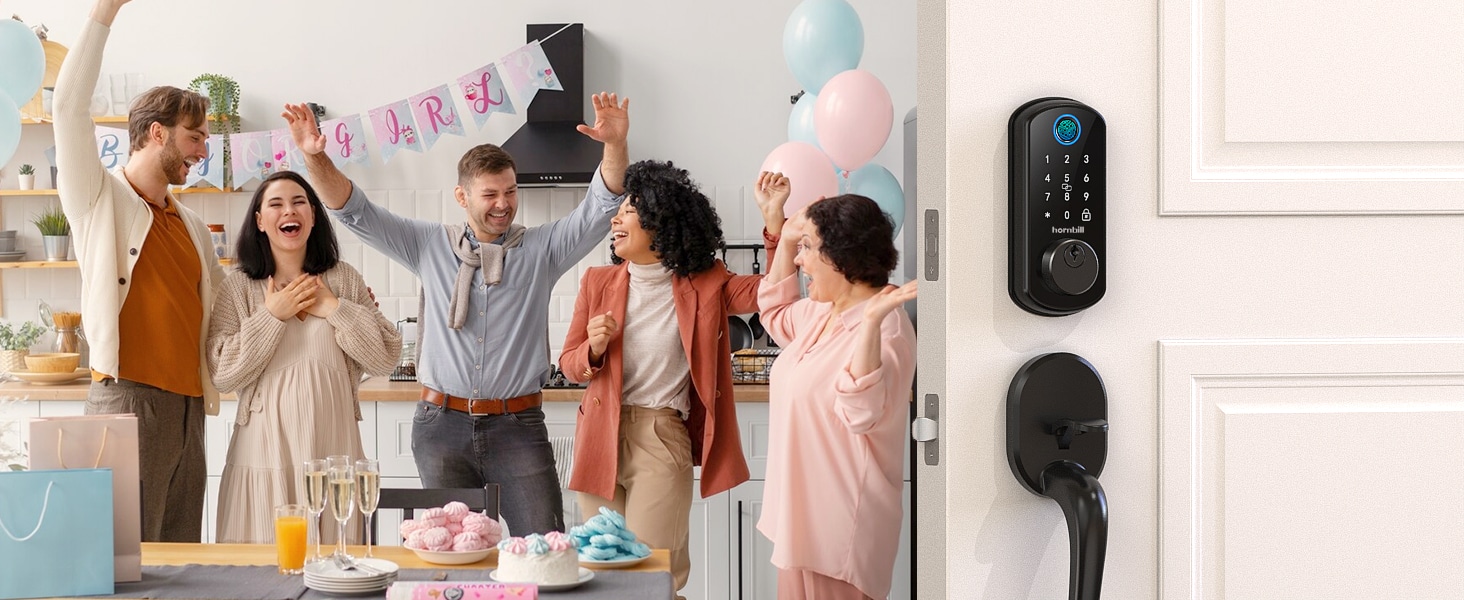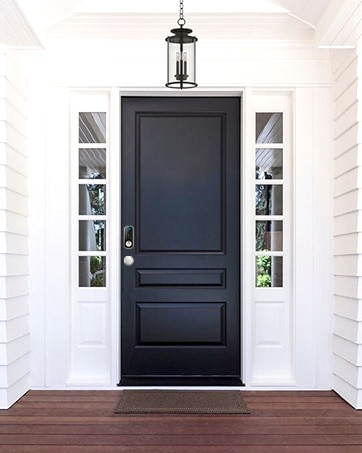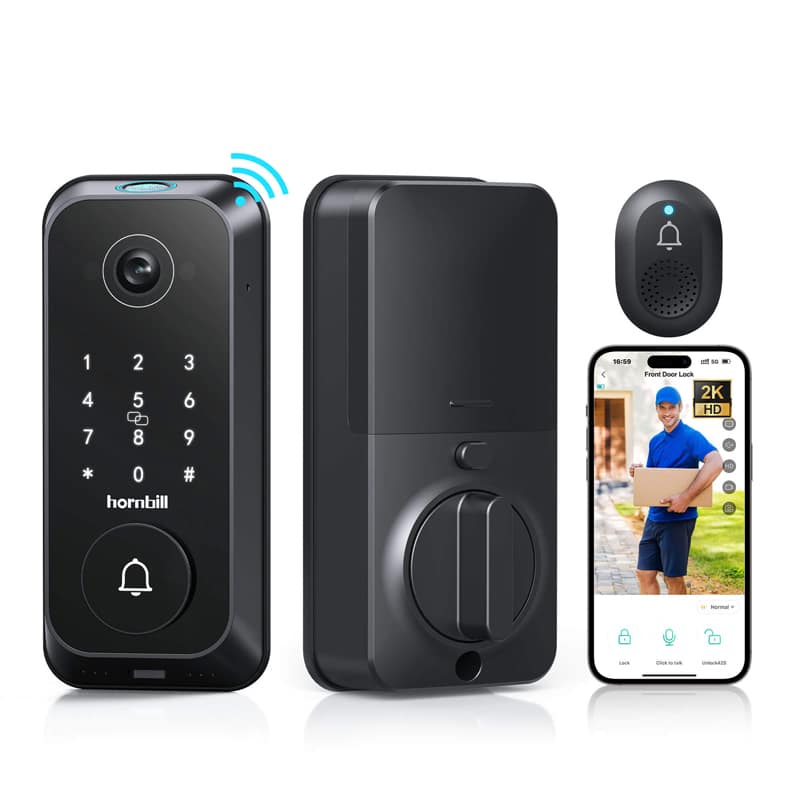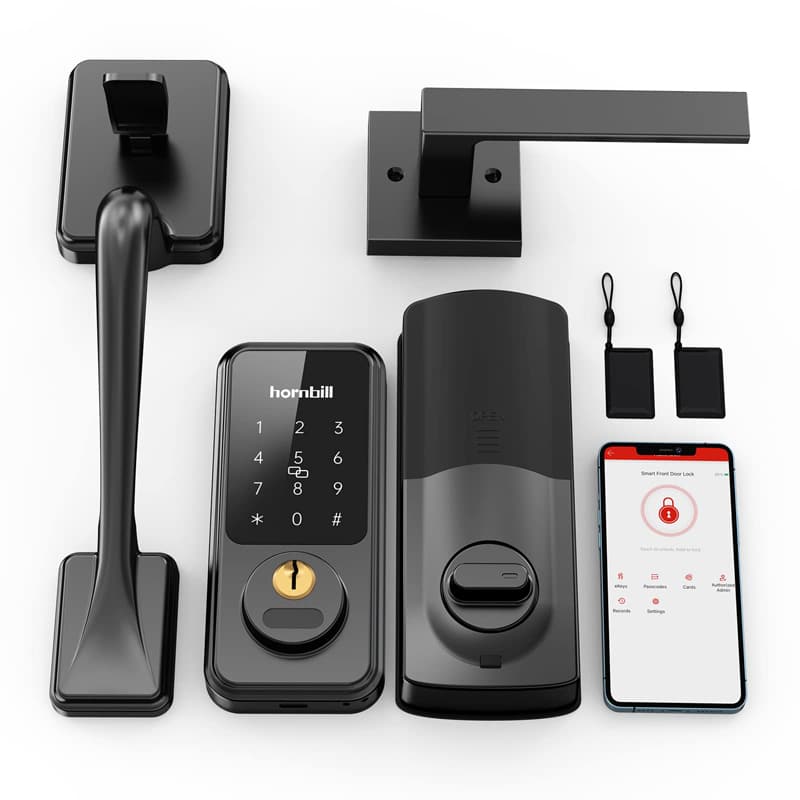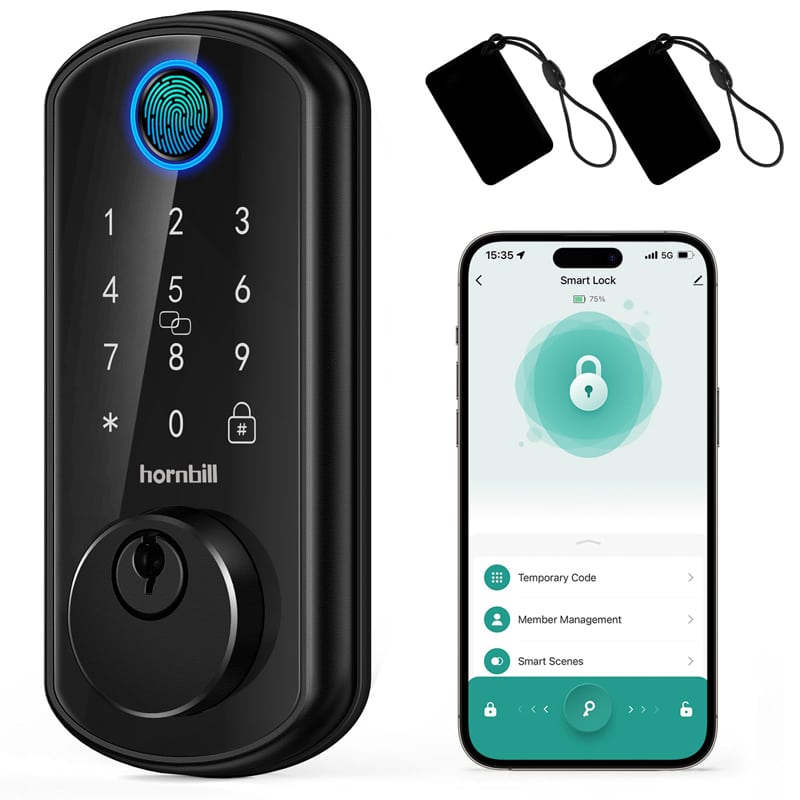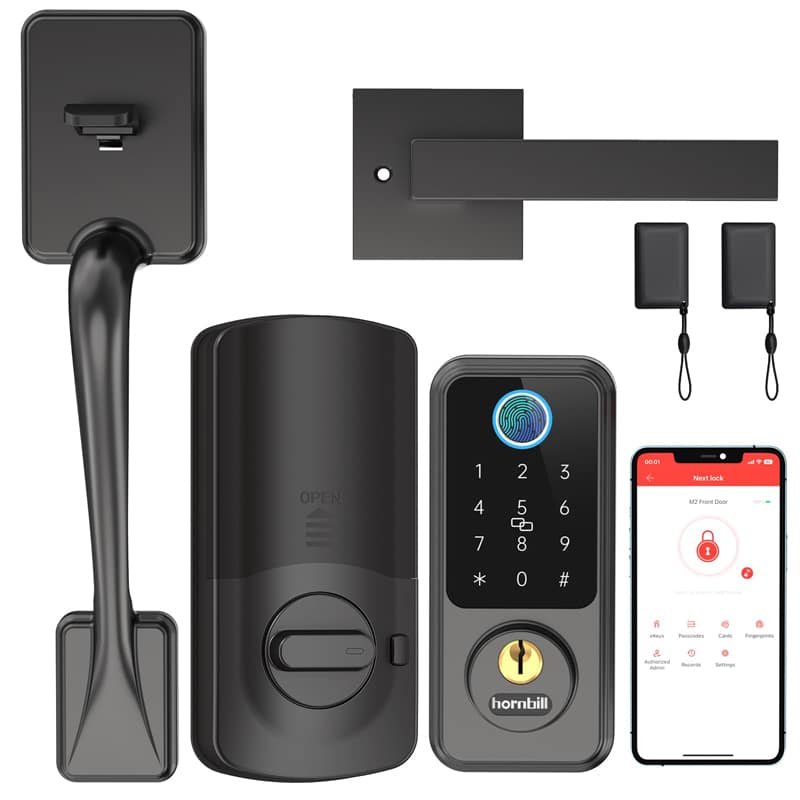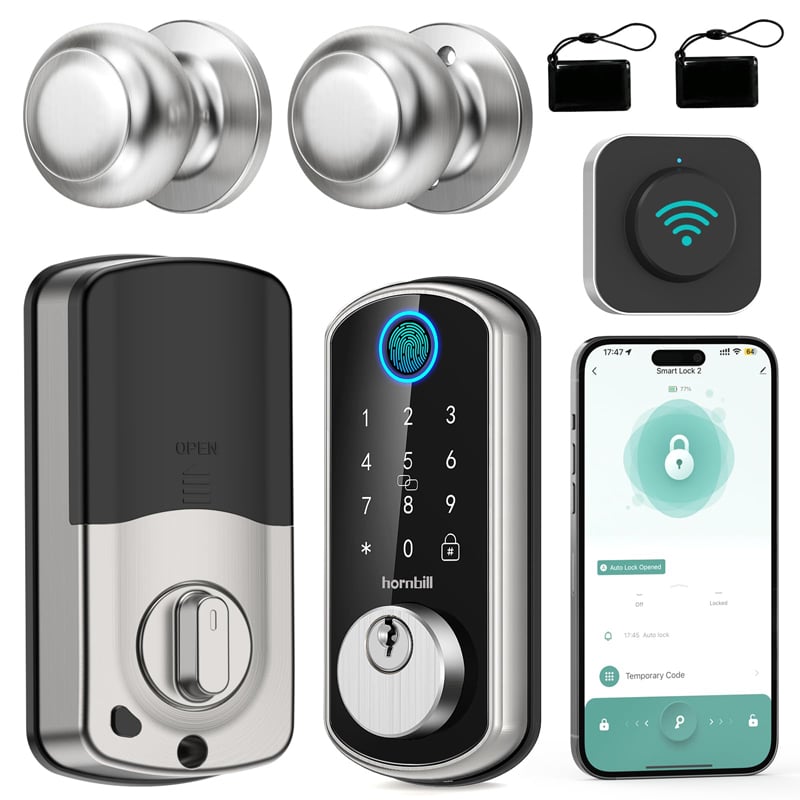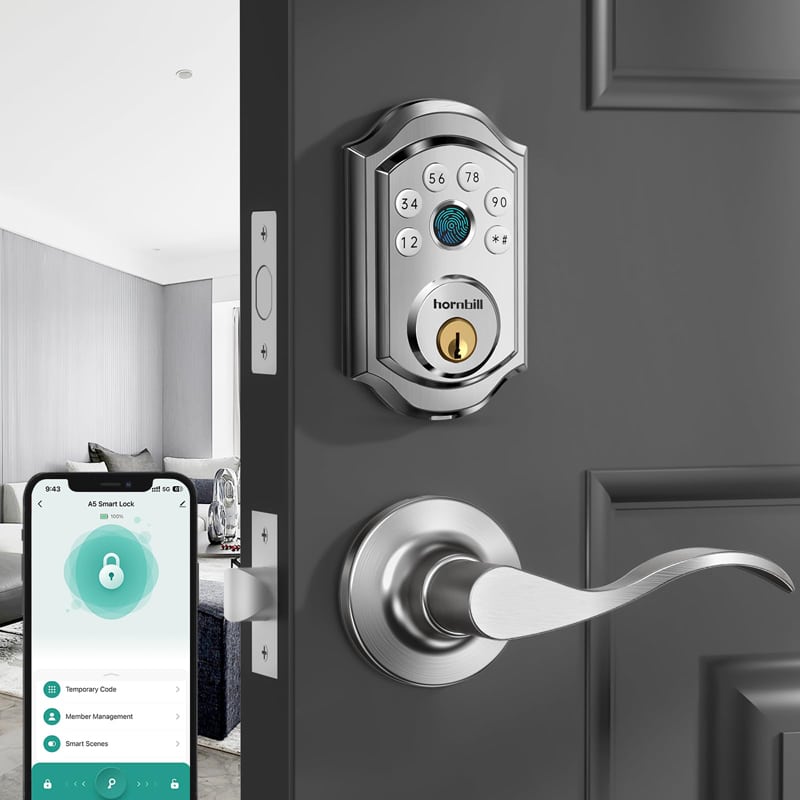Smart door locks are often perceived as easier targets by intruders than traditional locks as they use digital credentials, such as passwords or PIN codes, which can be susceptible to guessing or leaking. However, these risks can be effectively mitigated with smart practices and advanced features present in these locks. Here’s how exterior keypad door lock can assist in preventing password guessing and leakage:
keypad door locks - Advanced Encryption
Indoor keypad door locks utilize advanced encryption standards to ensure the secure transmission of digital keys. These locks replace traditional mechanical keys with electronic passcodes, which offer several advantages in terms of security. Unlike regular passwords that can be easily guessed or intercepted, these encrypted passcodes undergo complex coding processes that make them extremely difficult to decipher or replicate.
By employing sophisticated algorithms, the encryption protects against unauthorized access, enhancing the overall security of your home or business. Additionally, many modern best keypad door lock provide features such as temporary access codes for guests or service personnel, allowing for convenient yet controlled entry. This combination of advanced technology and user-friendly access makes indoor keypad door locks a reliable choice for safeguarding your property.
exterior keypad door lock - Anti-Peeping Technology
Certain exterior keypad door locks come equipped with a feature known as “anti-peeping,” which significantly enhances security. This feature allows users to input a sequence of random digits either before or after their actual password. For example, if your password is “1234,” you could enter “56781234abcdef” and still gain access, as long as the correct sequence “1234” appears somewhere within the entire input string. This clever design not only protects your password from potential onlookers but also adds an additional layer of complexity, making it substantially harder for anyone attempting to guess or deduce your true credentials by watching your input. Overall, the anti-peeping function serves as a valuable tool for safeguarding sensitive information against prying eyes in public or unsecured environments.
home keypad door lock - Biometric Authentication
Biometric features, such as fingerprint and facial recognition, offer a significant enhancement to security measures by minimizing dependence on traditional passwords. Unlike passwords, which can be forgotten, stolen, or easily guessed, biometric identifiers are unique to each individual. This uniqueness ensures that unauthorized access becomes much more difficult, as it would require replicating a person’s specific biological traits. For instance, a fingerprint is distinct to each person and virtually impossible to duplicate accurately, while facial recognition systems analyze various facial features and patterns for more precise identification. By implementing these biometric systems, organizations can create a more secure environment, thereby greatly reducing the risk of unauthorized access and enhancing overall data protection.
Auto Lock and Delete After Multiple Failed Attempts
Most smart locks incorporate a security feature that temporarily disables the locking mechanism after a certain number of incorrect password attempts—typically ranging from three to five attempts, depending on the model. After reaching this threshold, the lock will remain inactive for a specified duration, which can vary from a few minutes to several hours. This timeout feature is crucial as it serves to thwart potential brute force attacks, where an unauthorized user tries to gain access by systematically guessing passwords. By making it more difficult for intruders to access the lock, this design enhances the overall security of the property.
Temporary and Time-Constrained Access Codes
Many home keypad door lock come equipped with the ability to generate temporary access codes that can either expire after a designated amount of time or can be used for a single entry. This functionality is particularly beneficial for situations where you need to provide access to guests, service personnel, or temporary workers without compromising your security.
For example, if you have visitors staying at your home, you can easily set up a code that allows them entry for the duration of their stay, ensuring that they cannot access the premises outside of that timeframe. Similarly, service providers, such as cleaners or maintenance workers, can be given a one-time code that allows entry just for the day they are scheduled to work.
By utilizing these single-use or timed codes, you significantly minimize the risk of password leakage or unauthorized access. Once the code expires or is used, it becomes void, thus providing an added layer of security to your home or property. This makes smart locks not only convenient but also a highly effective solution for managing access.
exterior keypad door lock APP - Notification Alerts
Exterior keypad door locks offer advanced features that allow homeowners to customize their security options. One significant capability is the ability to send real-time notifications to the owner’s smartphone whenever the lock is accessed. This means that users receive instant alerts not only when someone successfully unlocks the door, but also in the event of any unauthorized attempts to gain entry. As a result, homeowners can quickly respond to potential security breaches, ensuring that they are always informed about who is accessing their home and when. This level of monitoring provides peace of mind and enhances overall home security.
Regular Password Change
It is important to develop a routine of changing your smart lock password on a regular basis, such as every few months. By doing so, you significantly reduce the risk of your password being guessed or compromised. Cybersecurity threats are constantly evolving, and a regularly updated password serves as an effective defense against unauthorized access.
In conclusion, while no electronic keypad door lock is entirely impervious to intrusion, smart door locks armed with these features and practices can help significantly reduce the risk of password guessing and leakage, thus ensuring the security of your commercial building.

